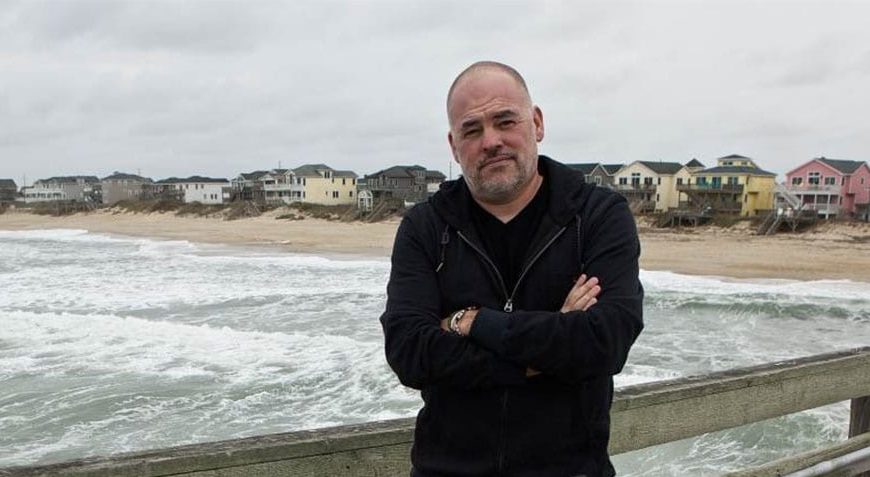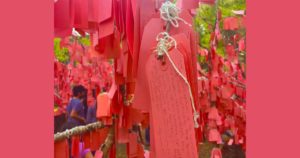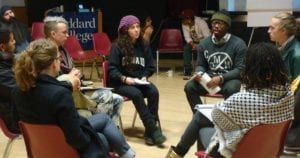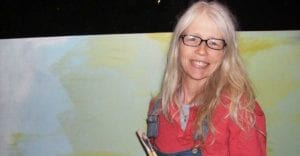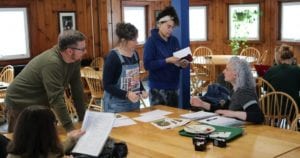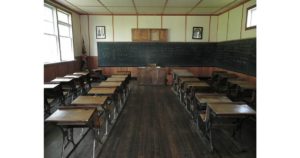 Turning to write about risk and its accompanying later knowledge, revelation, I fell into memories of the waves out from 9/11. Soon I was wearing a different set of shoes and walking in a different time.
Turning to write about risk and its accompanying later knowledge, revelation, I fell into memories of the waves out from 9/11. Soon I was wearing a different set of shoes and walking in a different time.
The towers fell straight to the ground; the fire burned for months, melted steel, a long wick deep in the ground. Paper–record of our mark–becoming a tide under our feet. High swells, larger than any of the words or their echoes, letters falling into altered combinations. More paper than shoes, more dust than blackened bones.
Now, it is language itself. The English language. Speak, repeat spew. Not the languages of many, but a very few words in repeat spew to dull, undignify and divide. How to speak, write, tell and use the language well. Or will we have nothing between us but blood, fear: the old, poor conclusions. I do not want to say end; a conclusion can be altered, a word in the right place at the right time can change a life. A heart. The words are ours to bring alive and use. I think of James Baldwin who chooses his words so well in ”The Discovery of What It Means to Be An American” from Nobody Knows My Name: “American writers do not have a fixed society to describe. The only society they know is one in which nothing is fixed and in which the individual must fight for his identity. This is a rich confusion, indeed, and it creates for the American writer unprecedented opportunities.” He goes on to articulate the need for learning how tragedy can become possibility, “Europe has what we do not yet have, a sense of the mysterious and inexorable limits of life, a sense, in a word, of tragedy. And we have what they sorely need: a new sense of life’s possibilities.” Perhaps now, we can name some of the limitations of our history and make new a meaning for possibility among us.
“Surely all art is the result of one’s having been in danger, of having gone through an experience all the way to the end.” –Carolyn Forche, The Angel of History
In early February, I flew to NYC from Maine for work. On the way in, the cab driver asked me what I thought, about what’s going on with Trump—one day after the first international protests against the Muslim Ban, including Maine’s Bangor International Airport. I told him I was ashamed, then, You couldn’t be anywhere better than NYC. Together we began naming cities that could be safe. We made a chorus: LA, SF, Seattle, Detroit, Minneapolis, Boston and praised NYC, as we glided and bumped along the pavement. He worried about his son in school, never using the word bullying. I told him I was a teacher, and began to say lawsuits would be filed to break the ban. When I heard myself say, “unconstitutional,” I felt his attention slipping back to worry, no faith in the word. My own dimmed as I felt his distance, my closeness to the dull words of my country. My heart came back with the word, ashamed, never mind the promise of our laws. On parting, I asked his name: “Hussein,” he said, and we shook hands. I thanked him. “You are a very nice person,” he said, then added “God Bless America.” I wanted to say you don’t need to say that, but it was his decision to offer this. “We need it,” I assented. What would it do to say, I’m not a practicing Christian? I stood on the pavement, ready to enter my life, a 67-year old white writer working in part-time jobs, teacher, editor. He pulled out into his threatened every day. We would need more time. How could that happen? A good question with threat snapping at his son’s back. Today, one traffic violation, and he could be gone. Cruelty delivered.
What haven’t we recognized? Letters in the air, and translation, words cupped, to drink from two hands held as one. Have we missed knowing the language? sIs this the utterance of our lives, a hand to mouth gesture? A cup of darkness at the lip.
The towers in the first minutes reduced an empire and its holdings to dust.
What is the shape of meaning of a footprint in the dust, the feel of the imprint, and the response of earth underfoot? The rock is the same.
I have lived inside a picture I could not see or read. Wavering lines across the page: there in the waves out, I was not alone. We were together on the sea.
On 9/12, there was a route to deliver clothes and supplies, people coming on foot across 23rd with shopping carts full of Gatorade and water, car-trunks stuffed full of socks for firemen, feet sodden, struggling to put out the fire. I headed downtown, happy to be with others–bus alive with talk. The word at 23rd, no more volunteers, but I sit, marvel at my adopted city’s people. Suddenly, I see a friend Bell in her wheel chair with a young friend guiding her. She works on the PEN Prison Committee, writes to inmates on Death Row. She tells me she can do decompression counseling, eager to tell me, someone, what she can offer. A deep flicker.
September 12th is my third week working at the women’s maximum security prison teaching Baldwin and Woolf. Inside, I pick up photo ID, get searched with a metal detector, hand stamped, before the tunnel of barbed wire. The gates open on one side and close behind me. I hold my hand up to the black light. When the other side opens, I walk through a tunnel of billowing razor wire. To my left, a tower with armed guards. One or two staff smoke outside.
All prisons are locked down during a national security crisis. On the 12th, the prison is locked down–no visitors, no contact, no movement in or out.
NYC is locked down–bridges, tunnels closed. No travel below 14th Street without ID, proof of residence. A police line cordons off 14th St., east to west.
The prison can go into lock, because of something inside, something outside, or something we will never know about. Security is secret. Security stays secret. There are no reasons given and no negotiation. I may hear pieces of the story later from the women, depending on how fresh the news stays within the walls. I have been told to bring in no evidence of where I live or work, and not to ask about any prisoner’s time or crime. Not asking becomes a way to not know.
The next week, when I tell the women about feeling helpless riding the bus around Manhattan, wanting to help–they tell me that’s the way they feel all the time. At the break one of the women approaches. She gets very close to my face and peers at me, as if she could see all the way into my shoes and where my feet have been. She asks: “How is the world?”
In NYC, the day after my cab ride with Hussein, I saw “I Am Not Your Negro,” the riveting, visually stunning documentary by Raoul Peck, created from Baldwin’s unfinished work comparing the lives and assassinations of MLK Jr, Medgar Evers and Malcolm X as a portrait of this country and of his friendships. Baldwin has kept a steady brilliance, lighting up all questions about our country; and Raoul Peck’s weave of live footage reached into my life and implored me to name passages lit in memory from the 60s, mid-70s and on into the 80s, each loaded instance bringing on more memories and questions.
NYC has kept calling me back–my last return in the late 80s after the FBI came to visit, when I published Central American Women Poets for Peace, IXOK AMAR.GO, and an audit closed my publishing company, Granite Press. I notice how everything is a long story now and the years leap and slide. I refer to these times as “accordion times” to two friends who are on the cusp of leaving the country for nine months. Accordion: push-pull, hold tight, take care and be here. Make music any way you can.
Returning to risk and revelation: risk is for poetry, seeking emotional meaning, sound anticipating blood understanding, muscle in the language–so rhythm brings Langston’s “The Weary Blues” into daring imagination. The unexpected brings shocks of truth and poetry can be trusted as the song of bone-deep experience. As Audre Lorde has said in “Poetry Is Not a Luxury”: “Poetry forms the quality of light within which we predicate our hopes and dreams toward survival and change, first made into language then into idea, then into more tangible action.” Emotional risk, action, creating connections: this is what shapes community. Think of the poem as community, the space guiding meaning, while revelation may build, sometimes over a long time, to waking up in urgency. We may meet ourselves and others in an entirely new light. And take action.
Begun in the waves out from November 2016 … And in the waves out from 1968, the day Richard Nixon was elected. I wept that day in November as I crossed a bridge over the Charles River in Cambridge. I was 19. No fan of Humphrey, the political parties, a washout in my mind. Nevertheless, I knew what Nixon meant. It would not be pretty—all “law & order” and war. Some people are still in jail, since that time, or dead or living somewhere else. The cops cut off the same bridge in 1969, when we marched to protest Nixon’s Bombing of Cambodia. Amazing we got as far as we did, then it stopped and whatever we had imagined as our right of assembly died that night.
The order from the police: Clear the Square! the sweep began. If we weren’t already there, we answered: the freaks, the anti-war young and older, the soundtrack of our lives begun. Police dragged people on the way home from work out of the subway, out of Hayes Bickford Cafeteria, and chased and beat protestors within the locked-down perimeter through the night.
I remember the sound of bottles breaking and strange quiet. No gathering, only dispersal, frightening and constant. Only stragglers making strands of rebellion. No buses, cabs, cars, just sporadic bursts, thud of tear gas canisters as the smoke rose blue in the street lights, and the hollowness of sounds stranded, more and more alone.
We headed out Mass Ave. The cops behind us ran their nightsticks against the iron railing outside the Law School. At the curve, they started running after us. A door opened in a Law School dorm, Come in here! We bolted into the entryway joining a few others on the stairs and breathed. The cops did not pursue us. We waited until the fitful sounds of rebellion, stark and increasingly lonely, died down. Then we walked the few blocks up Mass Ave in a strange quiet and turned to safety, our known boundaries changed.
I was there that night, but for me, it began earlier: with The Assassination (meaning Kennedy). How could this happen asked a teenager from his same hometown who was growing to feel some pride in Boston, even as she hated its cold comfort, and counted the days before leaving. Then all the killing began. Was this when she became I? Yes, because for me, it all ended, and began again, in 1968, with the assassination of Martin Luther King Jr and then Bobby Kennedy. King had spoken against the War–was that what did it? Organizing across into the ready listening of young white sons and daughters? Or was it the threat of a poor people’s March with everybody coming? Bobby Kennedy had gotten more truthful and more radical than his brother ever was; he was talking differently and he was not afraid. Was that what did it? Hatred unleashed and organized. And within these years, we had become many. What we called The War took many of our brothers, lovers and schoolmates—numbered by the Draft. One week in ’68 saw 543 Americans killed in action, and 2547 wounded. At that moment, we could not have imagined that we would see President Nixon leave Vietnam. Or that we would see his own untrimphant wave Goodbye to the Presidency by helicopter from the White House south lawn. The recently referenced Saturday Night Massacre anointed the moment of the dismissal of appointed Special Prosecutor Archibald Cox, when Attorney General Elliot Richardson and Deputy Attorney General William Ruckelshaus resigned in vivid rebellion rather than fire Watergate Special Prosecutor Cox who was readying to expose Nixon’s lies. The Republicans never got over that—Nixon being taken down. They made damn sure that Voting Rights were never the same again, even with some few protections. The gerrymandering began in earnest. Nixon, Reagan and Bush began another story, winding, murderous and repeating, about who was to Blame. Check it out.
In the waves out from the fall of the Towers where fire burned for months under the building’s footprint. How can anyone think of themselves alone? How can a sky, empty of clouds, be empty? We are in vibration, then and now, spreading outward and penetrating inward, disrupting the binaries. In Nobody Knows My Name, Baldwin delineates the American problem: “Though we do not wholly believe it yet, the interior life is a real life, and the intangible dreams of people have a tangible effect on the world.”
I’m learning to look elsewhere, while staying in tune. Vision no longer a mechanism, but parsed like cloud cover, moving fast, returning to cloak the orb in darkness, light, to an altered vision of the whole round world. Fast-moving clouds, a larger story. Daily news, a thicket in front of the eyes.
Have we learned more? Do I listen longer, less? How many languages do I speak and what is the chant of my dreams? Where is my place? Today, I think, my place is on the waves out, witness and word maker alive on the motion of the tides. I am not stranded. I’ve been here, and never the same, before.
In The Fire Next Time, James Baldwin returns to the necessity of confronting and recognizing all that disrupts and terrifies us. Baldwin says that without risk, there cannot be true giving. And if we cannot look at our selves, we cannot know what it is to really be equal or to be free, in a deeply spiritual and political sense, to be able to love.
If we continue to focus on the triumph and uncertainty of the individual, without renewing ourselves, or allowing failure to teach us, then we will be trapped by the seduction of a preference for ease, for heaven, for vacation, for all that says, ‘It’ is good and perfect in our lives; better than ‘you.’ You and your poverty, your timid silence taking classes in Adult Literacy at the library, and your speaking three languages, besides English, when clearly, there is only one that counts. This is a problem. This is a problem for our country.
What language(s) will we speak when we cross over?
Perhaps we can learn to love not only by looking at ourselves in our own light, but by looking at ourselves from other times and other places. What time is it in Mosul? In Detroit? What are you wearing, and have you eaten when you hear the sound of planes, buzz of drones, policing helicopters? Who is being policed by whom exactly? Can you see your hand in the dark? Do you have a match? Do you have electricity? For how many hours a day? At night? A lantern? Water? Is the water sweet? Or is the water poisoned, and how did that happen?
At the NYPL St. Agnes Branch on the Saturday after 9/11, I read with poet & translator Marilyn Hacker. We began with W.H. Auden’s 1939, “All I have is a voice/ To undo the folded lie…”// “We must love one another or die.” At the reading, three homeless people sat in the front row and some slept– the library held them safe. We gathered afterwards in our apartment, spoke few words, moved in and out of small clusters. The poems did their work.
Today, I choose French poet, Paul Eluard’s “Seven Poems of Love in War, 1943” as he furies on and relishes staying human, his repetition revelatory:
“… Shame of unbounded evil/ Shame of our absurd butchers/Always the same always/The same lovers of themselves// Shame of the trainloads of the tortured/Shame of the words scorched earth/ But we are not ashamed of our suffering/ We are not ashamed of our shame/”
“… Honte du mal illimite/ Honte de nos bourreax absurdes/ Toujours les memes toujours/ Les memes amants d’eux-memes// Honte des trains de supplicies/ Honte des mols terre brulee/ Mais nous n’avons pas honte de notre souffrance/ Mais nous n’avons pas honte d’avoir honte.”
To undo shame and shaming is the risk taken to arrive into the gifts of the earth and bring the heart alive. I follow the poem’s pattern of circulation with surprise and anticipation. Life blood, a relation to all the sources of love in poems of warning and revelation, meanings absorbed, sometimes at great risk over time.

